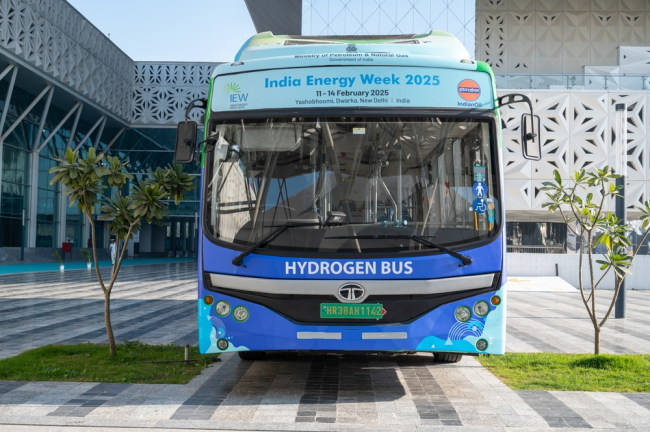Obama Remarks on Energy: Ball in Congressional Court

President Obama has made clear that in the 2012 election, he intends to defend his record on energy from the middle.
Starting his remarks with US oil dependence, President Obama tackles the hearty perennial of US energy xenophobia. Like most Presidents in their third year, he now knows better than to talk of energy independence - as that only works in campaigns and fund raising in the oil patch. His outline for how US dependence could be reduced is quite complete with enough nods to the various shareholders to effectively reveal the political landscape and fault lines.
Republicans will feel especially good about what is not in the speech - neither carbon markets, nor cap and trade targets for reduced CO2 emissions, nor even calls for regulatory vigor. And they will like a good bit of what is in the speech - a call to expand US production of oil and gas, offshore drilling, a robust permitting process and support for nuclear. The President’s new rubric “Clean Energy Standard for America” includes nuclear power - a favorite of Republicans. The effort to reduce import dependence is further advanced by a commitment to the bio-fuels of the corn-state Republicans. And Republicans will not be troubled by President Obama’s warning that investment in energy technologies should not be cut, because they plan to offer tax breaks to the industry - which (for them) is not seen as the same as government spending.
Democrats will find comfort in the cautionary words about drilling for offshore oil and for shale gas and the safe deployment of nuclear power - a necessary component of a lower carbon power sector. President Obama’s call for greater efficiency, second generation bio-fuels which address concerns about ethanol feedstock impact on the food chain and several other transportation initiatives in rail, fleet standards and electric vehicles, will all be well received by Democrats.
What the President chose not to elaborate was the unspoken theme of dangerous technologies and tough choices. He was addressing a nation still alert to the oil-spill disaster in the Gulf of Mexico, recently aggravated by the new docu-drama on shale gas that screened in America and now stunned by the magnitude of the devastation in Japan and the consequent nuclear accident in Fukushima. US nuclear safety institutions were already monitoring developments in Fukushima and the President’s speech-writers knew the news we were hearing was probably not the worst of it - by far. Drawing lessons from those events could not have been done justice in the context of brief “remarks”.
Americans, like Japanese, Europeans and everyone else face a limited choice of energies to fuel their lives. Not one source is without its drawbacks. Instead, President Obama used his visit to Georgetown to set out his agenda for the major initiatives he would like to extract from a reluctant 112th Congress before the elections. With its new Chairman from Michigan, Fred Upton whose early hearings appear intended to undo EPA authority on carbon dioxide and Obama-Care, the House Energy and Commerce Committee may not be the best place for the President to find help. Perhaps better to work with the Senate Energy Committee where a bipartisan team of Jeff Bingaman and Lisa Murkowski might be predisposed to challenge House Speaker Boehner with some hard legislative proposals.
The Macondo accident and Japanese nuclear disaster have softened two Republican top priorities. The remaining political redline in energy is drawn through any mechanisms that even appear designed to put a price on carbon. But, as there are plenty of initiatives in President Obama’s Blueprint for a Secure Energy Future that would go some way to improving the sustainability of America’s energy mix, he has thrown down this somewhat familiar gauntlet to the Congress to do something positive before the coming elections. The President do doubt would like the Tea Party to have to answer to the electorate for any lack of progress.

Available in:
Regions and themes
Share
Related centers and programs
Discover our other research centers and programsFind out more
Discover all our analysesIndia’s Green Hydrogen Strategy in Action: Policy Actions, Market Insights, and Global Opportunities
India is poised to remain the world’s fastest-growing major economy, and this rapid growth is driving a sharp rise in energy demand. As the most populous country on the planet, India urgently needs to decarbonize its energy systems.
Water in Mexico: an Emergency that Will Wait
Access to water is already and will become increasingly problematic for Mexican economic actors due to the progressive scarcity of the resource resulting from climate change, a geographical distribution that does not coincide with that of the population or economic activity, and management that has so far been far too lax.
AI, Data Centers and Energy Demand: Reassessing and Exploring the Trends
The information and communication technologies sector today accounts for 9% of global electricity consumption, data centers for 1-1.3%, and artificial intelligence (AI) for less than 0.2%. The growing energy demands of cloud services first, and now AI workloads (10% of today’s data centers electricity demand), have exacerbated this trend. In the future, hyperscale data centers will gain shares amongst all kinds of data centers and AI will probably account for around 20% of data centers electricity demand by 2030.
Unlocking India’s Energy Transition: Addressing Grid Flexibility Challenges and Solutions
India is rapidly scaling up its renewable energy (RE) capacity, adding 15–20 GW annually, but the ambitious goal of 500 GW of non-fossil capacity by 2030 is at risk unless the pace accelerates.











